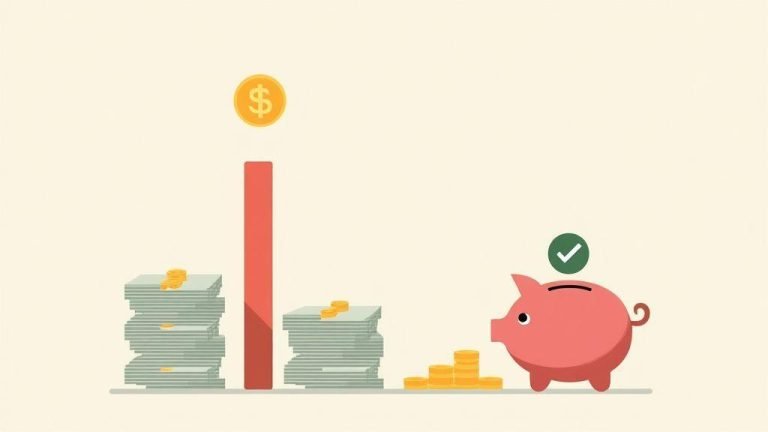Where you can find safer loans and compare APR caps: How to avoid predatory lenders when seeking loans with poor credit by checking APR caps and fees for payday alternatives
You want a loan without getting chewed up by sky-high fees. Start by looking beyond flashy payday ads. Credit unions, community banks, nonprofit lenders, and some online marketplaces offer lower-cost options for people with bad credit. State-run programs and local charities can also provide small emergency loans or refer you to safe lenders.
Make the lender show the APR and total cost in writing before you sign. Don’t just look at the monthly payment — ask for the full repayment amount, all fees, the term length, and an example payoff schedule. Compare those numbers to payday loan costs in your state; that comparison will show who’s trying to trap you.
Keep a simple rule: if a loan takes a big bite out of your paycheck or asks for access to your bank account for automatic withdrawals, slow down. Use the phrase How to avoid predatory lenders when seeking loans with poor credit by checking APR caps and fees for payday alternatives as a mental checklist — check the APR, check the fees, check state protections — and walk away if answers are fuzzy.
Compare APR caps for payday alternatives and low-fee payday alternative loans so you pay less
APR gives you the true cost in one number. When you compare offers, ask each lender to show APR, fees, and the full payback amount. If a lender lists only a short-term flat fee, convert it to APR so you can compare apples to apples. A low APR and a reasonable term usually beat a small monthly payment that hides big fees.
Use an example to spot a scam: if one lender wants $100 to borrow $300 for two weeks and another offers $300 for a few months with a clear APR and schedule, the first may be a payday-style trap. Ask for an amortization schedule and use a free APR calculator online. If numbers confuse you, get a second opinion from a credit counselor.
Look at credit unions, community banks, and state borrower protections to avoid predatory lenders with poor credit
Credit unions and small community banks often treat members like people, not profit centers. They can approve small loans, offer flexible terms, and charge far lower rates than payday shops. If you don’t qualify for an unsecured loan, ask about secured loans, short-term installment loans, or payday alternative programs many credit unions run.
Check your state’s laws before you borrow. Some states cap APRs, limit rollovers, or require clear disclosures. State banking or consumer protection sites list licensed lenders and complaint histories. If a lender isn’t licensed in your state or refuses to give written APR and fee details, move on.
Check lender APR disclosure, total cost, and state APR caps before you borrow
Get written APR, total repayment amount, fees, and loan term. Compare those numbers to your state APR cap and to other offers. Refuse loans that demand instant bank access, high prepayment penalties, or vague fee lists. If a deal smells wrong, trust your gut and walk away.
How you can prepare documents and improve your approval odds for a personal loan with bad credit
Gathering the right papers fast will make you look reliable. Lenders want proof you can pay back a loan. Bring ID, pay stubs, bank statements, and recent bills — that can move your file from maybe to yes faster than arguing about scores.
Work on the money side while you collect documents. Pay down a credit card a little, avoid new credit checks, and fix any late payments you can. A small drop in credit utilization and steady deposit history can swing approvals and lower offers.
Pick the right place to apply. Credit unions and local banks often give better deals to people with past problems. Online lenders and peer-to-peer sites can compete, but always compare total cost and terms. Treat shopping like an interview: find a lender who looks at your full picture, not just a single number.
Gather ID, proof of income, bank statements, and recent bills so lenders verify you quickly
Bring a government photo ID and your Social Security number; add a recent utility bill or lease to prove your address. Put everything in one folder or a labeled PDF on your phone so you can send it fast.
For income, provide current pay stubs, a year of bank deposits, or recent tax returns if self-employed. Lenders typically like three months of bank statements. If you get gig pay, show consistent deposit patterns. Clear, dated documents speed verification and reduce back-and-forth.
Consider a co-signer, secured loan, or small installment loan to access the best installment loans for bad credit with low APR
A co-signer with good credit can drop your APR and broaden lender options. Remember: if you miss payments, the co-signer pays and their credit is at risk. Be honest and write a simple repayment plan you both sign.
Secured loans use an asset you own, like a car or savings account, to lower risk for the lender. Small installment loans from credit unions often have lower APRs than payday-style lenders. Shop and compare real examples, and avoid title or payday lenders that demand huge fees.
Negotiate fees and terms with lenders and get written APR and fee caps before signing
Ask for the exact APR, all fees, and any caps in writing before you sign. How to avoid predatory lenders when seeking loans with poor credit by checking APR caps and fees for payday alternatives — insist on clear numbers and say no to vague promises. Walk away from one-sided contracts.
How you spot and avoid predatory lenders by watching signs and evaluating APR and fees
Focus on total cost. Ask for the APR and the Truth in Lending disclosure up front. If a lender dodges that question or gives only monthly fees instead of APR, treat it like a red light. A clear APR and a full fee list show the real price, not just a promise of “easy cash.”
Make a mantra out of it: How to avoid predatory lenders when seeking loans with poor credit by checking APR caps and fees for payday alternatives. Say it aloud, write it down, or save it on your phone before you sign anything. That phrase helps you compare offers without getting swept up by slick sales talk or “limited time” pressure.
Compare offers side by side: APR, origination fees, late fees, and total dollars repaid. A loan that looks cheap month-to-month can cost a small fortune in the end. If the math stings, walk away.
Watch for signs of predatory loans like hidden fees, rollovers, and pressure to pay now
Predatory lenders pressure you to sign immediately, promise guaranteed approval, or ask for upfront fees. They hide fees in fine print or bury rollover terms that trap you in a cycle of repeated, costly loans. If the lender rushes you or shames you for asking questions, that’s a red flag.
Look for contract gaps. Vague repayment schedules, fees that only appear after you start paying, or automatic renewals are warning signs. A fair lender gives clear, written terms and answers your questions. If they won’t, step back and compare other options.
Learn how to check loan APR and fees and evaluate loan APR disclosure and total cost before you accept an offer
Ask for the APR and the Truth in Lending disclosure. The APR shows the yearly cost of the loan, including fees, so you can compare apples to apples. If the lender gives only a dollar fee or a short-term interest number, ask them to convert it to APR or do it yourself with an online calculator.
Look beyond APR for hidden costs: origination fees, late fees, prepayment penalties, and whether interest compounds daily or monthly. Add up the total dollars you’ll repay, not just the monthly payment. That total tells the true story and helps you pick a loan that won’t leave you stuck.
Choose alternatives to payday loans for bad credit and report predatory practices to your state consumer agency
If payday loans are the only option offered, consider safer paths: small-dollar loans from a credit union, an installment loan with a clear APR, borrowing from family, or a paycheck advance through your employer. Contact a nonprofit credit counselor for options. If you spot a predatory lender, report them to your state consumer protection agency or the CFPB so others don’t get trapped.
Frequently asked questions
-
How can you spot a predatory lender fast?
Check APR and fees first. If rates are sky-high or terms are vague, walk away. You deserve clear numbers.
-
What APR cap should you look for before signing?
Aim for low two-digit APRs or less. If it’s over 36%, think twice. Many credit unions and nonprofits offer better options.
-
Where can you find payday alternatives with lower fees?
Look at credit unions, community banks, or nonprofit lenders. Employer paycheck advances and nonprofit credit counselors can also help.
-
How to avoid predatory lenders when seeking loans with poor credit by checking APR caps and fees for payday alternatives?
Compare APR caps and all fees side by side. Demand written disclosures and pick the option with the lowest real cost. Use state resources to confirm licensing and complaint histories.
- ### What questions should you ask the lender before you agree? Ask for total cost, APR, origination and late fees, payoff rules, and whether interest compounds. Demand answers in writing. If they dodge, refuse the loan.



